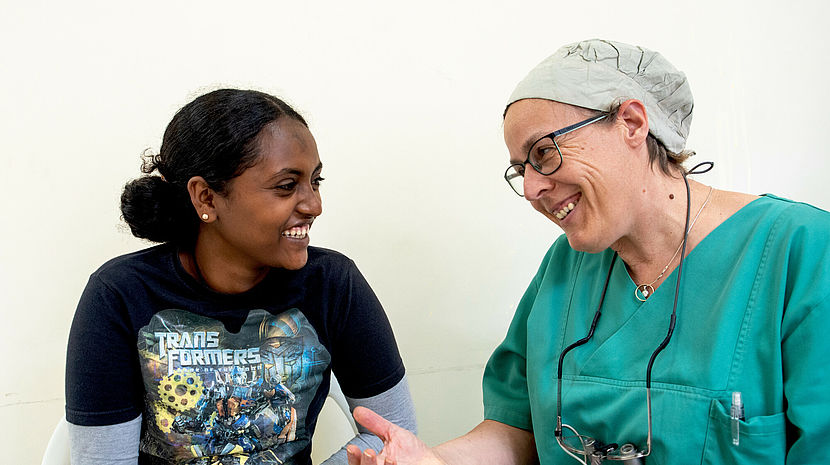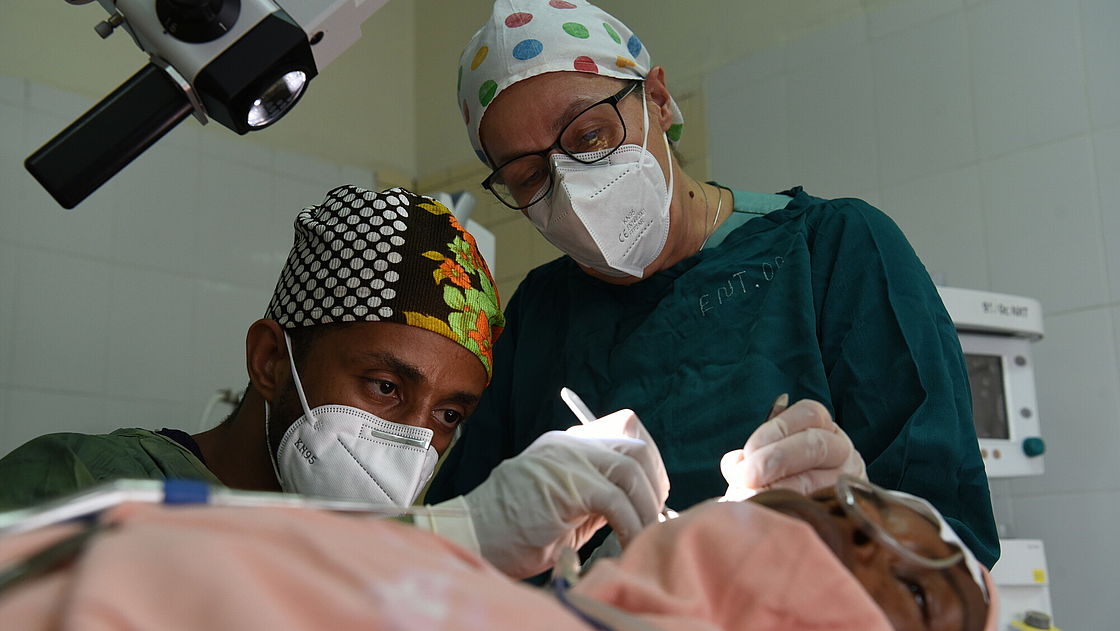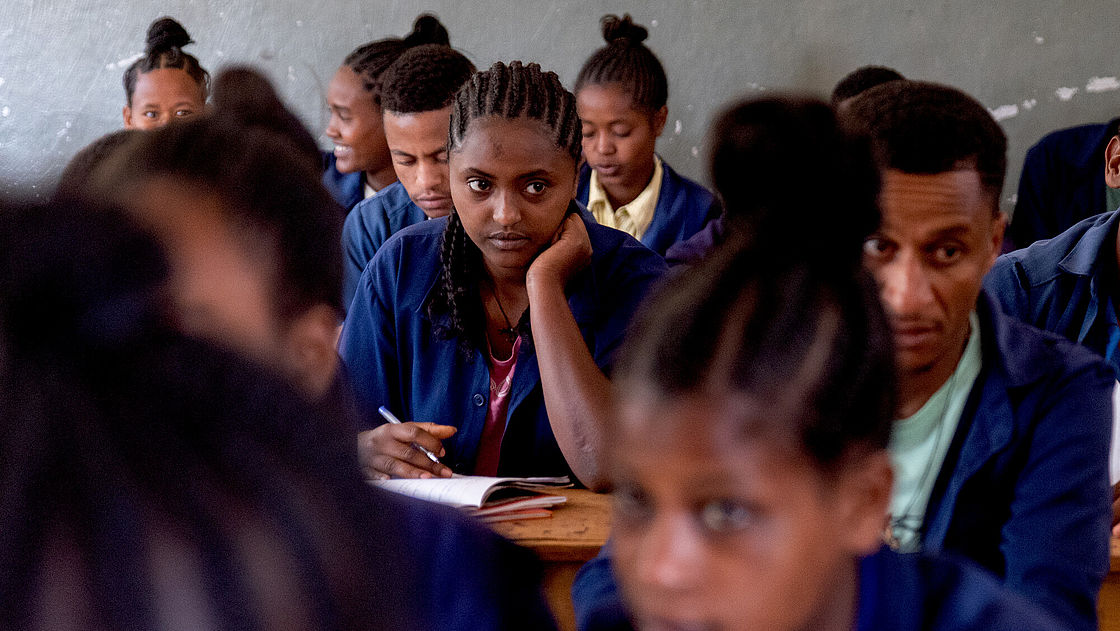Ethiopia:
A Child is Born Deaf and No One Notices

Hana had bilateral hearing impairment. She underwent surgery on her left ear at GTM Hospital, a partner of CBM in Ethiopia. Her hearing has improved significantly and she is very happy.
©CBM
CBM brings hearing health for all to the poorest regions of the world.
On the occasion of this year's "International Week of the Deaf", which takes place from 19 to 25 September, CBM Christian Blind Mission is drawing attention to the situation of people with hearing impairments.
According to estimates by the World Health Organisation (WHO), about 400 million people worldwide are hearing impaired. 34 million of them are children. Most of them live in the poorest regions of the world and it is almost impossible for them to attend school.
Dr Uta Froeschl, a specialist in ear, nose and throat medicine, experiences this time and again. She is originally from Germany and now works for CBM in Ethiopia.
Dr Froeschl knows what it means to have a hearing impairment in a developing country like Ethiopia: "In industrialised countries, there is newborn screening, which means that every child is usually examined immediately after birth in the hospital or shortly afterwards. But when a child is born deaf in Ethiopia, no one notices," says Dr Froeschl. "Sometimes the children do not come until they are 5 or 8 years old. And then basically an insane amount [of time] is lost." This is also true for many countries in sub Saharan Africa and Asia.
Hardly any schools for the deaf
The outlook for these children is correspondingly bleak. Unlike in developed countries, there are few opportunities to support them in Ethiopia. Schools for deaf and hard-of-hearing children are rare.
"Parents have to see that they somehow get the chance to place their children in such a school. And if not, the children are out of luck."
In many cases, however, a hearing aid or surgery can help with hearing problems. In Ethiopia, however, there are very few doctors who can operate on ears. Therefore, one of Dr Froeschl's main tasks is to train young ENT doctors in ear surgery.
Preventing hearing damage by training specialists

ENT specialist Dr Uta Froeschl during a surgical training of a resident doctor at CBM partner St Paul's Hospital in Addis Ababa, Ethiopia.
©CBM
When she arrived in the country four years ago, there were only three ENT doctors who could operate on ears. Since then, Dr Froeschl has trained eight more surgeons. She knows how important training is to sustainably improve health systems like the one in Ethiopia. Only specialists can prevent people from unnecessarily losing their hearing, for example, due to a middle ear infection.
In Germany, Dr Froeschl is one of many

Eighteen-year-old Hana at school. She received Cholesteatoma surgery from GTM Hospital.
©CBM
Better medical care could have saved Hana a long ordeal. Before the girl was operated on by Dr Froeschl, she suffered from a severe bone infection in her ear for years. Hana could hardly hear anything. She felt lonely and excluded: "Hana told us that she was often teased at school because she just did not understand the teacher," Dr Froeschl reports. The 18-year-old is now in the 11th grade.
Class. "She can now hear better at school and that makes a big difference in her whole life," Dr Froeschl is happy to report.
This is also the reason why she enjoys her work as a doctor in a country like Ethiopia so much: "Here in Germany, I would be one of many," says Dr Froeschl, "and if I am not there, that's fine, because someone else can do it. But in Ethiopia, before me, there was just no one doing ear training continuously, and it's just insanely good to pass on my skills, and it gives me a lot of fulfilment."